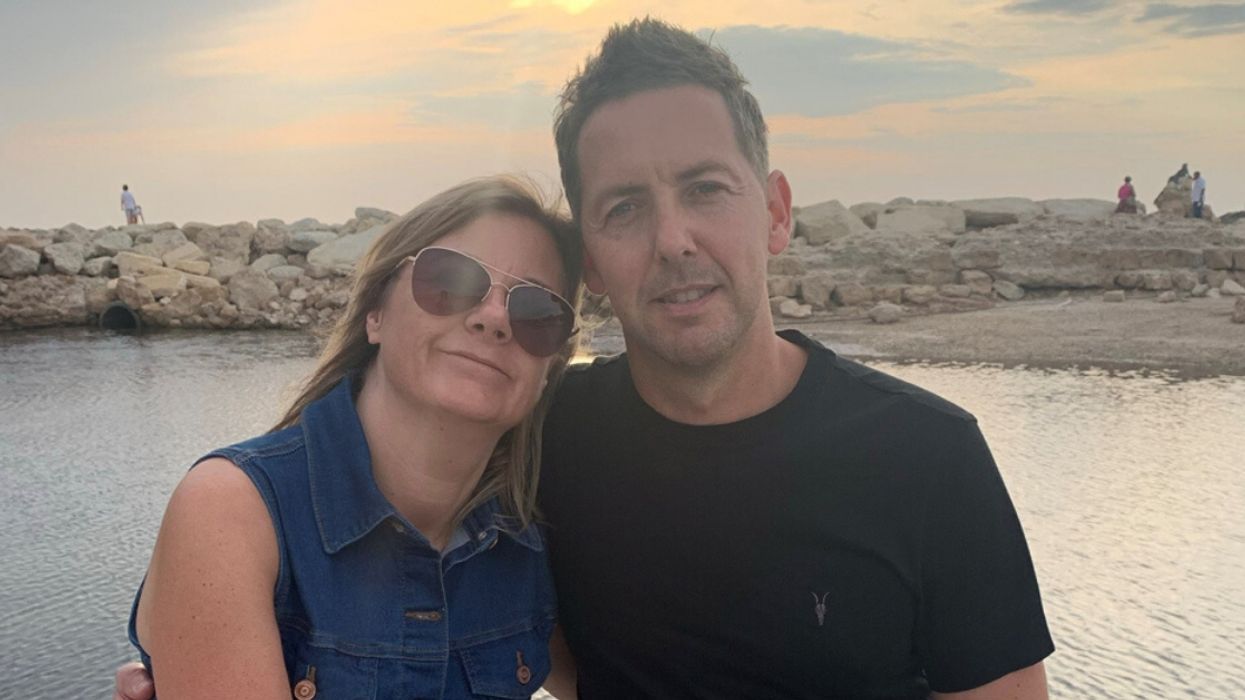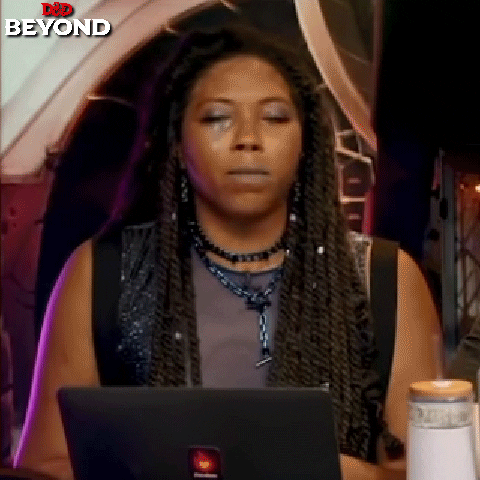A happily married mother-of-two told her husband to leave her as she "felt like damaged goods" when she discovered the tremors she had experienced for nine years were symptoms of Parkinson's disease.
Dismissing her jittery left hand as a consequence of “everyday stress," even when operations manager Sam Aylieff, 46, found boxing at the gym more challenging and her children complained that she was gripping their hands too tightly when they walked to school, she brushed it off.
Her denial was shattered when Sam, of Corringham, Essex, England, finally saw a specialist in February 2019, after realizing she could not carry a full drink in her left hand on a night out with friends, and was told she had the degenerative brain condition Parkinson's disease.

Devastated, Sam, who has been married to project manager Stuart, 46, for eight years and with him for 21, said:
"I calmly told my husband that if he wanted to leave me, I would completely understand."
"Who wants to be with someone who's going to hold you back in life?"
"But he gripped my hand and said, 'Never.'"

Affecting around one in 500 people in the UK, while there are treatments to ease the symptoms of Parkinson's, it remains incurable – mostly affecting people over 50s, although a fifth of people with the condition, like Sam, first experience symptoms when they are under 40, according to the NHS.
It is caused by a loss of nerve cells in part of the brain called the substantia nigra, reducing the amount of the chemical dopamine, which is essential to regulating the body's movement.
Sam, who has a daughter, Charlotte, 14, and a son, Oliver, 10, first had a tremor, symptomatic of Parkinson's, in her left hand nine years ago, during a smear test.

She said:
"The nurse at my smear test said the tremor in my left hand couldn't be Parkinson's, so I dismissed it and just put it down to stress."
Over the years that followed, her left toes started cramping, she developed a limp and then, a few years ago, she stopped typing with her left hand – just letting it rest on her stomach as she worked.
"It all happened so gradually that I didn't really notice," she said. "People would often see my hand when I was typing and ask me if I had hurt myself. Looking back, there were lots of little clues."

Plunged into complete despair by her diagnosis, Sam has now started a Facebook page discussing her feelings and showing how she has coped, in the hope of helping someone else who feels their life has hit rock bottom.
"I felt so alone and so scared after my diagnosis," she said. "It's almost like a bereavement, as you are mourning the loss of the person you were and the person you were hoping to be."
"Now I want to show people that life does go on. I want to put a positive spin on what life is like when you get diagnosed with a disease and everything seems bleak and scary."
Recalling the night out that acted as a final straw for Sam, who afterwards saw a private neurologist in Brentwood, Essex, she remembers enjoying drinking cocktails with her friend, until it reached her round.
"Fear gripped me as I knew I couldn't carry a full drink in my left hand," she said. "No one would be pleased if I dropped the drinks, but rather than saying anything, I worked out that if I pushed two glasses together, it gave my left hand enough grip to manage."
After a series of tests at the neurologist's, including an MRI and a DaTscan – a tool used to confirm the diagnosis of Parkinson's by looking at the dopamine transporter levels in the brain – Sam was given the terrifying news that her brain was dying.

"The drive home from that appointment was an emotional one," she said.
"I still didn't believe it was true. I felt like I was damaged goods. My future was going to be completely different from the one I planned and hoped for."
"The day after my diagnosis, I wandered around the house in floods of tears for a couple of hours. Then I reached my lowest point, calling Stuart in a complete state, crying, breathless and slightly hysterical."

"I didn't need to ask the question, he knew what I needed and said he would come straight home from work," Sam continued.
"The dark, sad, soul destroying thoughts continued to churn through my head, I couldn't stop them."
"Will I have a slow painful death? Will I be a burden on my beautiful children? How long will I be able to work and then how will we cope financially? Will my husband still love me or will he just become my carer?"

As her inner turmoil raged, it took Sam six months to tell her children she had Parkinson's, as she had to first accept the diagnosis herself.
She said:
"How could I tell my children if I could not even hold myself together? I needed to protect them until I knew what was going to happen, until I could say Parkinson's without breaking down in tears."
"All they knew was that something was wrong with my brain but, one time, when they were in the car and I was dropping them off somewhere, I could not remember where this person lived. My daughter freaked out and thought I had lost my mind. That was when I realized I needed to tell her."

"We went to Colchester Zoo for the day and I got Stuart to take Oliver off for a bit, while I had a chat with Charlotte, just casually dropping it into conversation. Then I told Oliver about two weeks later," she added.
"Every now and then they have a wobble, but not telling them made their minds run away with them. I think they thought I was just going to drop down dead."
As well as coping with her emotional difficulties, there were new practicalities Sam had to address following her diagnosis.
With gear changes becoming difficult, because of her left hand, she bought a four-door automatic Smart car.
"The kids loved the quirkiness of it and it made it easier for me to drive," she said.
And her medication presented a whole new challenge, as she was prescribed Rasagiline and Ropinirole to ease her symptoms, but did not start them for a month, after reading about terrifying side effects on an online forum, where people claimed to have developed everything from a gambling addiction to an overactive sex drive after taking the drugs.

"I was on this forum where everybody was talking about the side effects," she explained. "I was frightened of everything. One woman said her husband had gone to prison because he had done something bad while on the drugs."
When she finally started taking them, the physical side effects as her body adjusted were horrendous.
She said:
"I was so sick from the medication for the first six months as my body got used to it. I used to enjoy yoga, but the sickness and dizziness made it too much."

She continued:
"I was in a meeting at work once and I thought, 'If I open my mouth I'm not sure what's going to come out.'"
"When we were out and about with the kids, I'd have to get my husband to take them away while I vomited. I'd throw up behind the car at the supermarket. The kids would panic and Oliver would go and get a napkin for me."
With strangers thinking she had a vomiting bug or was hungover, she was relieved when the side effects eased and she just wretched for 10 minutes, before the reaction settled.

Also, as a younger Parkinson's sufferer, muscle stiffness is her most prevalent symptom, although, with time, these may be joined by more persistent tremors, slurred speech and loss of balance – all of which are associated with the disease.
"I worry about being a burden when things get worse and not being there for my children," she said. "You don't die from Parkinson's, but life can become quite difficult."
"I don't want my children to be my carers, although my husband is convinced I will just walk with a limp and have tremors. Honestly, we just don't know what will happen."

"When we were on holiday in the Lake District last year, my family kept asking me if I needed help with anything and fretting in case I fell over," Sam added.
"My son, in particular, asks me, 'How can you be so positive?' and says, 'It's not fair this is happening to you.' Stuart has kept a lot of his feelings in, trying to be strong for me and trying to keep things normal. We don't look too much to the future."
"I try to be ignorant and live for the day, as Parkinson's is very unique to the person who has it."
While Sam had to give up boxing and yoga, her salvation came in the form of PD Warriors – a 10-week challenge for Parkinson's sufferers, involving specially-designed exercises which can be completed at home and at work.
She also saw a nutritionist, who advised her to cut out wheat, steer clear of fast food and follow a Mediterranean diet of fish, nuts, avocados and tomatoes.
"The kids think I am a complete bore," she said. "But I still give them bread and pizza, even though I don't eat wheat anymore."

Finally accepting her diagnosis and learning to live again, last month Sam started a Facebook page where she has shared her journey, hoping to show people who are despairing that it is possible to cope.
She said:
"I felt so alone and so scared and in such a dark place after my diagnosis, I thought my life was over."
"Night times are always worse for worrying and bad thoughts. I just couldn't see how I would drag myself out of this dark place – despite all the love I was receiving. But I am much better now, and I want to help other people and for them to know it's OK to be scared and to have horrible thoughts."

Now Sam is making the most of each day as it comes.
"I have accepted my disease and I want people to know about it now and to understand it," she said.
Paul Jackson-Clark, director of engagement at the charity Parkinson's UK, said a lack of understanding of the disease is one of the major problems for people who have it.

He said:
"They are often accused of being drunk, or they experience harassment when trying to go about their daily lives."
"This World Parkinson's Day, on April 11, we're encouraging members of the public to learn more about the condition by visiting our online platform, created in partnership with people living with Parkinson's and the Cure Parkinson's Trust, and by searching for the hashtag #knowparkinsons on social media."









 Replying to @StefanMolyneux/X
Replying to @StefanMolyneux/X Replying to @StefanMolyneux/X
Replying to @StefanMolyneux/X Replying to @StefanMolyneux/X
Replying to @StefanMolyneux/X Replying to @StefanMolyneux/X
Replying to @StefanMolyneux/X








 Playing Happy Children GIF by MOODMAN
Playing Happy Children GIF by MOODMAN  May The Fourth Be With You
May The Fourth Be With You 
 Nhh GIF by New Harmony High School
Nhh GIF by New Harmony High School